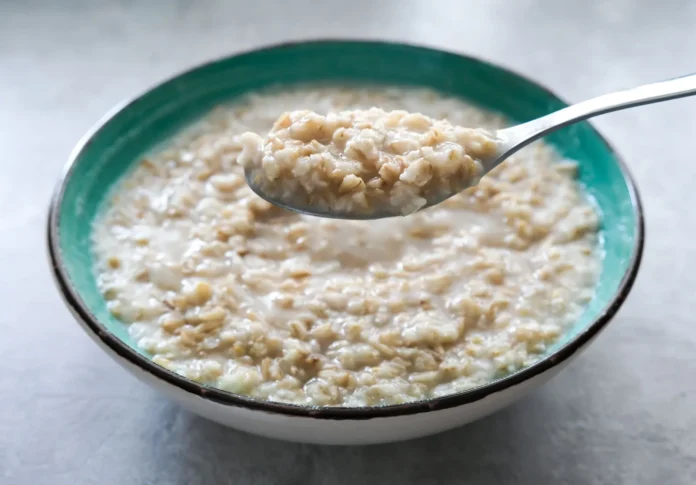Recent studies suggest that oats and oat products, often hailed as a healthy dietary choice, may not be as beneficial as previously thought. While oats are commonly promoted for their high fiber content and potential to lower cholesterol levels, some experts now caution against relying too heavily on them as a staple food.
One concern raised by researchers is the presence of a compound called avenin in oats, which belongs to the same family of proteins as gluten. Although avenin is generally well-tolerated by most people with gluten sensitivity or celiac disease, it can still trigger adverse reactions in some individuals, leading to digestive issues or other symptoms.
Moreover, the processing methods used to produce oat-based products may impact their nutritional value. For example, many commercially available oat products, such as instant oatmeal packets or flavored oat bars, often contain added sugars, artificial flavors, and preservatives, which can diminish their health benefits and contribute to overall calorie intake.
Additionally, some oat products undergo extensive processing, such as refining or milling, which removes the outer layer of the grain known as the bran. This process strips away essential nutrients and fiber, reducing the overall nutritional quality of the final product.
Furthermore, while oats are touted for their purported role in weight management and satiety, consuming excessive amounts of oat-based foods may lead to overconsumption of calories and carbohydrates, particularly if they are laden with added sugars or unhealthy fats.
However, it’s essential to note that not all oat products are created equal. Whole oats, such as steel-cut or rolled oats, retain their natural fiber and nutrients and are generally considered a healthier option compared to highly processed oat products. Additionally, incorporating a variety of grains and plant-based foods into one’s diet can help ensure a more balanced and nutritious intake.
Furthermore, research suggests that individual responses to oats may vary, with some people experiencing digestive discomfort or allergic reactions after consuming them. These reactions may be due to specific components within oats, such as lectins or phytic acid, which can interfere with nutrient absorption or cause gastrointestinal issues in sensitive individuals.
Moreover, the health benefits of oats may also depend on how they are prepared and consumed. For example, soaking oats overnight or cooking them with additional water can help reduce the levels of anti-nutrients and improve digestibility. Likewise, pairing oats with other nutrient-dense foods, such as fruits, nuts, or seeds, can enhance their nutritional profile and provide a more balanced meal.
Despite these considerations, oats still offer several potential health benefits when incorporated into a well-rounded diet. They are rich in essential nutrients like fiber, vitamins, and minerals, which support digestive health, heart health, and overall well-being. Additionally, oats are versatile and can be enjoyed in various ways, from oatmeal and granola to baked goods and smoothies.
While oats may not be a one-size-fits-all solution for everyone, they can still be part of a healthy and balanced diet when consumed mindfully and in moderation. By paying attention to individual tolerance levels and choosing minimally processed oat products, individuals can harness the nutritional benefits of oats while minimizing potential drawbacks. As with any dietary choice, it’s essential to listen to your body and make informed decisions that align with your unique health needs and preferences.

